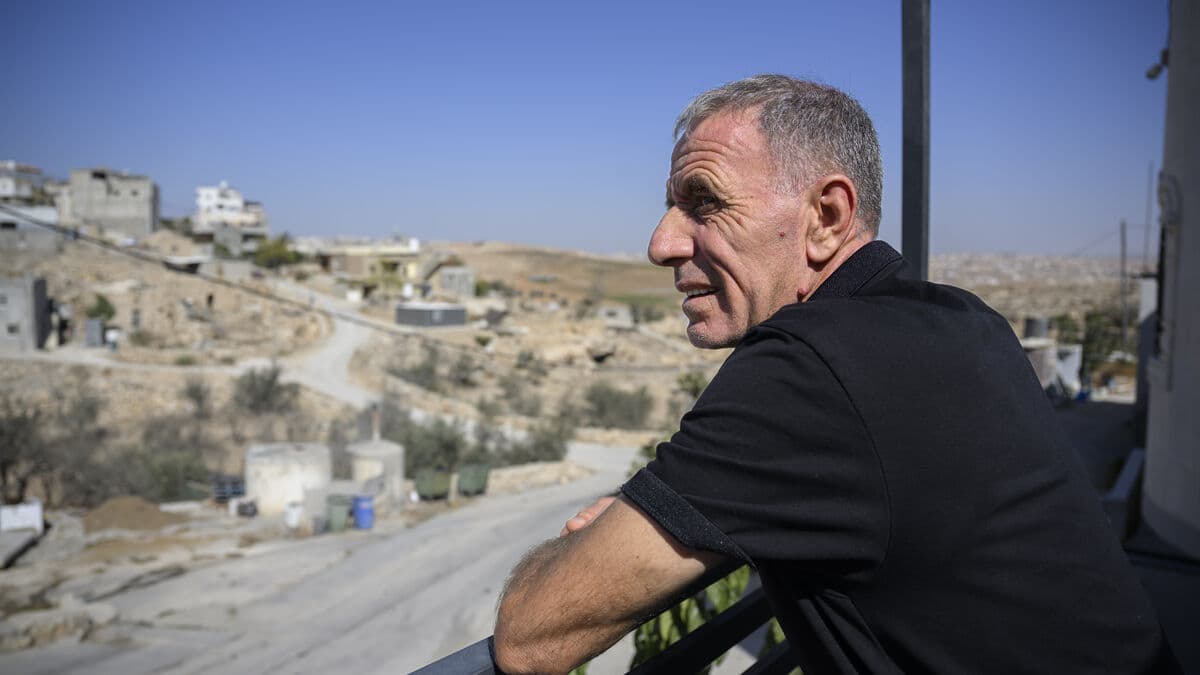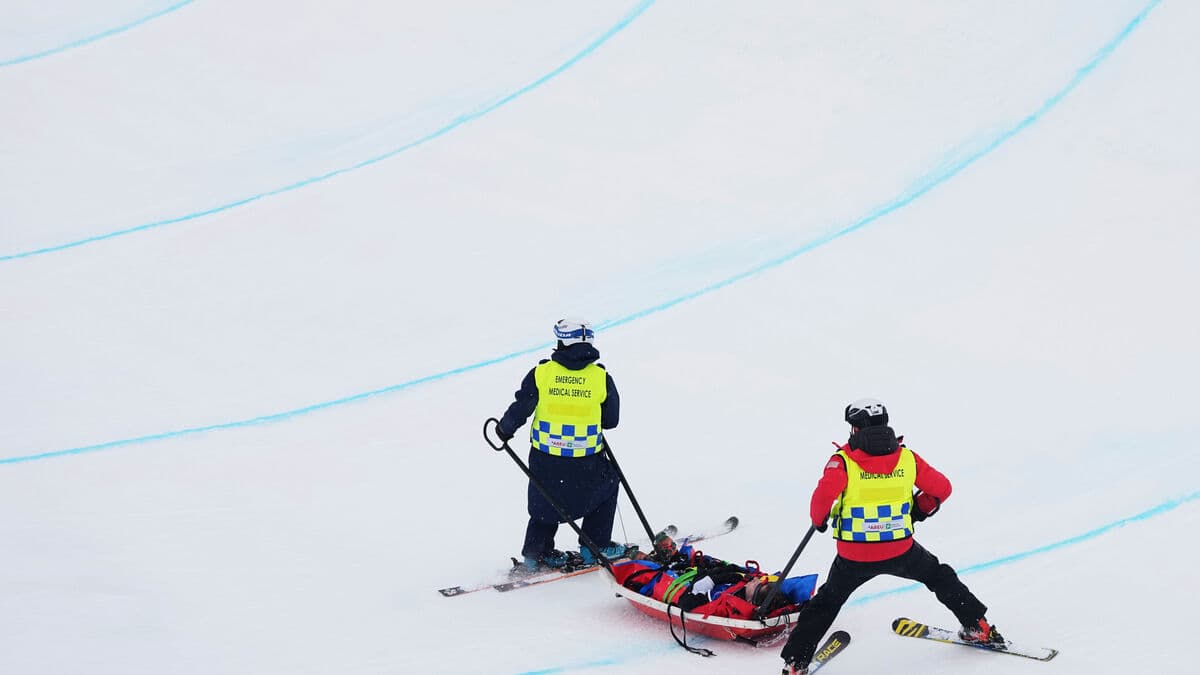In Tuwani, south of Hebron in the occupied West Bank, the olive harvest has just begun.
Normally, the residents here, squeezed into a valley surrounded by settlements, would leave their homes to pick olives. But now nothing is as it usually is, Hafeth explains.
The streets are eerily quiet, except for the chirping of birds and the sound of the Hurainis family's bleating sheep, who are no longer allowed to graze in the open.
"It's a difficult situation, but it has never stopped me from trying to live as usual. It's my way of resisting," says Hafeth, sitting on a plastic chair, his back turned to the family's olive grove, which is hidden behind a hill.
Advertisement
“My ribs were broken”
For some time now, he has stopped keeping watch over the hill, which armed settlers usually cross and enter the family's property. Once, they went all the way to the gate, Hafeth says.
They beat me so much that my ribs were broken.
During October, Israeli military and Israeli settlers attacked Palestinians picking olives 259 times, according to the Commission Against Settlements and Walls (CWRC), a body within the Palestinian Authority.
But it is not because of fear that Hafeth does not visit the olive grove as often as a bountiful harvest would require. It is something he returns to several times during the interview, even though he himself feels that the violence has crept ever closer.
"I'm physically prevented from going there. If I go there, they arrest me. Maybe for ten days or something like that," he says.
Shot in the stomach
On a nearby road, a relative was shot in the stomach, Hafeth says, asking his son Sami to show a film of the events.
Sami Huraini is a well-known activist after starting a youth organization that brings together young Palestinians to promote social justice.
The organization grew quickly and is now so large that they accept young activists from all over the world who are allowed to live in a house on the family's property.
A giant mural of an olive tree adorns the facade. On the branches, small children grow instead of olives, a symbol of all the generations of Palestinians who have harvested olives. The house itself cannot be left alone either – Israeli authorities have issued a demolition order, he claims.
They can demolish the house and raze it to the ground any day.
Has escalated
On the other side of the valley, beyond the spot where the family relative was shot in the stomach, four Israeli activists have moved in to support the residents of Tuwani.
They came believing that as Israeli citizens they could act as mediators in conflict-filled situations.
We are also being attacked, says Eliana Padwa, showing off her arm, which is plastered with bandages.
She was supposed to film a violent sequence of events, but was attacked herself.
"We were injured because we were there, but we were not the target. The target was Palestinians. For us, it shows another escalation," says Johny Yahsa.
At the end of October, a few weeks after TT's visit and as the harvest season begins to come to an end, Sami posts a picture on social media and writes that his father has been "kidnapped" by the Israeli military.
He was released after just a few hours. Sami doesn't know exactly why he was arrested, but it wasn't because he had visited the olive grove behind the hill to the family's house.
There probably won't be any olives this year, says Sami.
During October, Israeli military and Israeli settlers attacked Palestinians picking olives 259 times, according to the Commission Against Settlements and Walls (CWRC), a body within the Palestinian Authority.
According to the UN High Commissioner for Human Rights (OHCHR), settler violence has increased by 13 percent in the first six months of 2025 compared to the same period last year.
In 2023, approximately 96,000 hectares of olive groves were left unharvested, leading to losses equivalent to approximately SEK 100 million for Palestinian farmers.
Ajith Sunghay, head of the OHCHR office in the West Bank, recently warned that settler violence has increased significantly.
Source: UN, CWRC






